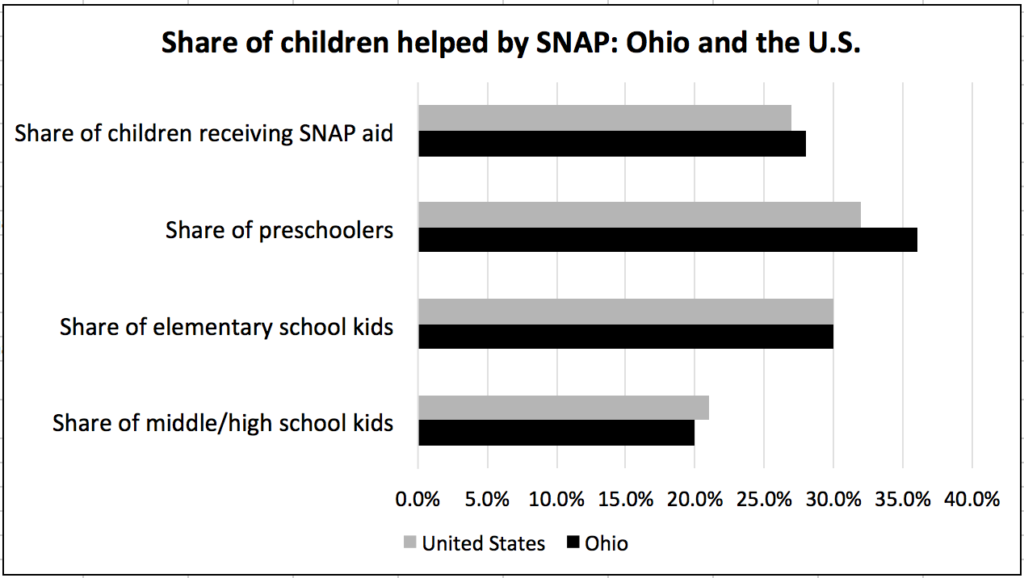Federal food aid helps Ohio kids thrive
Posted on 10/24/16 by Wendy Patton in Basic Needs + Unemployment Insurance

Food aid kept 741,000 Ohio children from being hungry in 2014 – more than a quarter of our babies and toddlers, nearly a third of our elementary school kids and about a fifth of our teens.
The Supplemental Nutrition Assistance Program – also known as SNAP or food stamps – is one of American’s best anti-poverty programs, particularly because it is so well suited to help children.
- SNAP helps families put food on the table. Food insecurity — limited access to enough food for an active, healthy life — among children falls by roughly a third after their families receive SNAP benefits for six months.
- SNAP improves infant health. Mothers provided with SNAP during pregnancy as the program gradually expanded nationwide in the 1960s and early 1970s gave birth to fewer low birth-weight babies.
- Children who receive SNAP do better in school. SNAP participation can lead to improvements in reading and mathematics skills among elementary children and increase the chances of graduating from high school.
- Early access to SNAP improves long-term health and economic outcomes. Adults who had access to SNAP as young children reported better health and had lower rates of “metabolic syndrome,” which shortens life expectancy. Women who had access to food stamps as young children reported improved economic self-sufficiency.
Ohio's SNAP program has a very low rate of errors and fraud, as evidenced in the recent report of state Auditor Yost. Some key features contribute to the program's success, including:
- Targets the neediest children: a consistent national structure effectively targets benefits to those with the greatest need;
- Provides help when help is needed the most: the design automatically responds to changing economic conditions; and
- Historical program integrity: rigorous requirements on states and clients ensure a high degree of program integrity.
Efforts to reform or enhance SNAP should build on its effectiveness in protecting the well-being of America’s children, and preserve the essential program features that contribute to that success.
-- Wendy Patton

Wendy is Policy Matters' senior project director.
